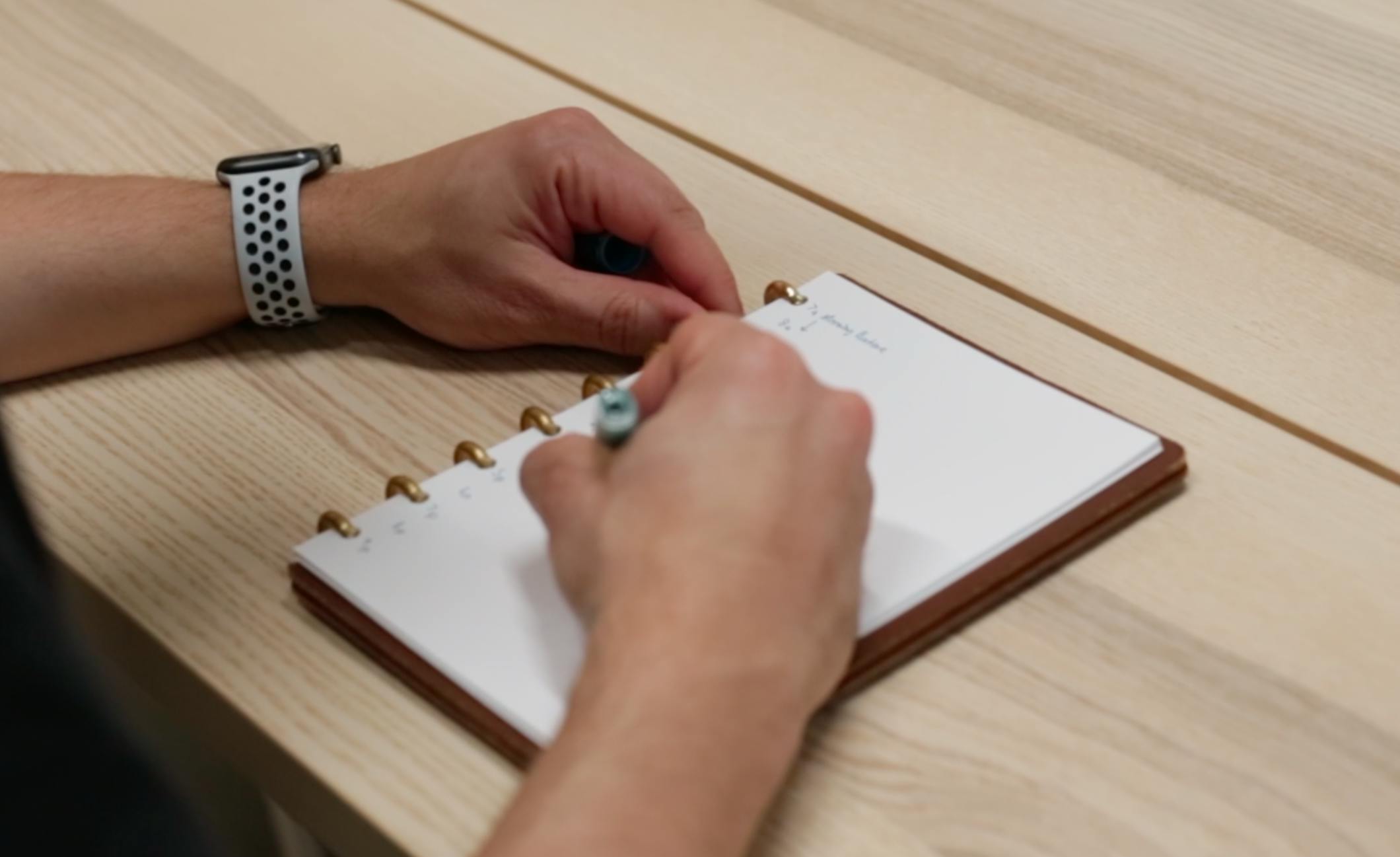Your cart is currently empty!
🕗 Can You Really “Make” Time?

I used to hate the phrase “make time.”
From a technical perspective, it’s impossible. We all have the same 24 hours in a day.
No matter who you are or what you do, you’ll never get more than that.
But it is the best metaphor available for purposeful time management. When you are intentional about how you spend your time, it does feel like you’re able to “make” more time for the things that are truly important.
The other option available is “finding time.” And we all know that if take this approach, we’ll never have enough time for what we really want to do.
So I’ve come around to the idea of “making time” as I think it is the best way to regain control over your time (the real goal anyway).
So how do you “make” time?
You rethink your defaults and protect time for what really matters.
The way to protect time for the important stuff is to create a time-blocked plan for your day.
|
|
A time-blocked plan is basically a budget for your time. By giving every hour a job, your brain is free to focus on the task at hand instead of trying to think about the all other important things that you “should” be doing instead.
When you time block, you basically just map out what you’re going to be doing for every hour of your day on a timeline:
- Start by putting in the non-negotiable things, like meetings and appointments
- Next, block time for the important tasks & projects you want to get done, protecting the time to take action on them.
- Then fill in the gaps until your entire day is planned out.
It’s a simple practice, but it helps me focus and eliminates the compulsive feeling to go check the inboxes because I’ve already decided on the best of use this time.
It takes me about 5 minutes to time block my day, but it easily buys back hours worth of focus each day.
The net result is that when I time block I feel like I “make” more time.
I time block in a notebook with a fancy fountain pen, but you could also do it in a calendar app or even Obsidian. In fact, my latest YouTube video walks through how to time block in Obsidian:
But regardless of what method you use, I highly recommend you time block your day. Here are a few tips to help make it stick:
- Use time blocks of an hour or more. By using at least one-hour time blocks, you will naturally build in a buffer. This will be really important when things go off track, giving you the margin you need to recover without everything breaking down.
- Don’t try to do too much. This is a common mistake a lot of people make at the beginning. They assume everything will go smoothly simply because they made a plan and when even one thing doesn’t go perfectly, their whole day is shot. Pick 3-5 things you want to get done. It’s important that you are able to follow through on your intentions.
- Control what you can control. If you have a job that is reactive (i.e. sales), you may not have complete control over your calendar. That’s OK! Start where you are with what you have. Apply intentionality to the few hours you can control and build from there.
- Use contexts. You don’t have to time-block tasks. Put a location, mode, or project on your time-blocked plan and give yourself the freedom to move it forward how you see fit when the appropriate time comes.
- Schedule your distractions. If you have trouble avoiding email or social media, create boundaries to protect the rest of your time by boxing it into a time block. Give yourself permission to go deep during that time block, then close the apps and get back to work.
- Don’t forget the fun stuff. If your time-blocked plan is all work stuff, you’ll probably find yourself trying to avoid looking at your time-blocked plan. But if you schedule some fun stuff in there too, you’ll naturally look forward to it.
Also, remember that a time-blocked plan is just that – a plan. And plans never go perfectly. One of my favorite quotes is from Dwight Eisenhower, who said:
Translation: The act of creating the plan is more important than the plan itself. By creating the plan in the first place, you’ve decided where to focus your attention and you’re much better equipped to roll with the punches if/when things go sideways.
— Mike
P.S. Make Time is also the title of a great book by John Zeratsky and Jake Knapp. I read this a while back for the Bookworm podcast. Here are my notes if you’re interested.